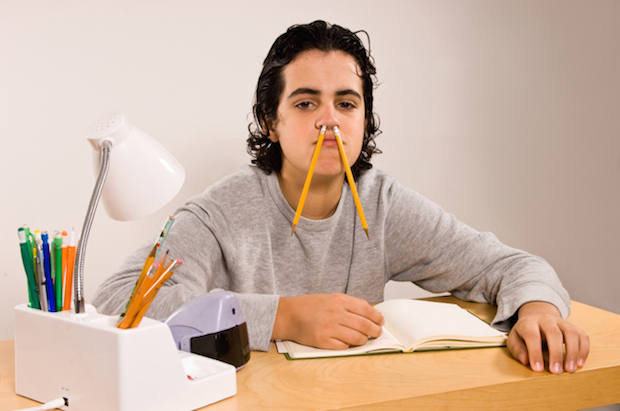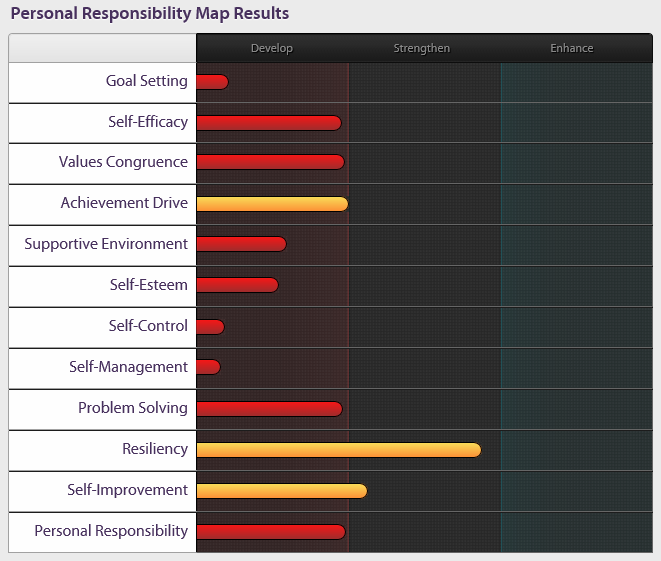
The focus of this blog is on the use of our Personal Responsibility Map® and skill intervention system in helping at-risk students to identify and develop key emotional intelligence skills for success in school and life.
Personal Responsibility—Achieving Academic and Career Goals™ is a research-based assessment and skill intervention system related to goal setting and achievement. A core assessment in our Personal Responsibility program is the Personal Responsibility Map. The twelve scales in the map can be broken down as follows:
Goal Achievement Potential
- Scale 1: Goal Setting
- Scale 2: Self Efficacy
- Scale 3: Values Congruence
- Scale 4: Achievement Drive
- Scale 5: Supportive Environment
- Scale 6: Self-Esteem
Personal Responsibility for Goal Achievement
- Scale 7: Self-Control
- Scale 8: Self-Management
- Scale 9: Problem Solving
- Scale 10: Resiliency
- Scale 11: Self Improvement
- Scale 12: Personal Responsibility
The Personal Responsibility Map is used to help identify goal achievement potential and links to our comprehensive skill intervention system.
Three Critical Skill Areas for At-Risk Youth
A dissertation by Marky Ellison Smith in 2004* investigated how at-risk high school students scored on our Personal Responsibility Map. The three scales that were consistently low for this student population were Goal Setting, Self-Control and Self-Management.
No surprise here, for in order to set and achieve goals you must possess the skills of self-control and self-management. To develop self-management skills, you must first develop self-control. In goal setting and goal achievement, controlling your emotions (self-control) is the first step before learning to manage your time, talents and resources (self-management).
Click here to learn more about Conover Online and our Personal Responsibility program.
*Smith, Marky Ellison, A Mixed Paradigm Study of Transformational Learning Programs for At-Risk High School Students (2004).

